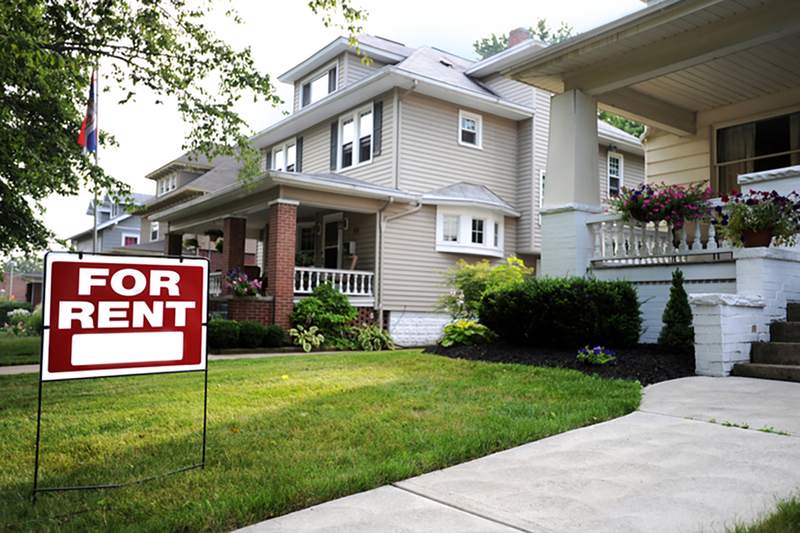If you’re interested in investing in real estate but daunted by the amount of cash needed to buy, finance, maintain, and sell a property, consider wholesaling real estate as an alternative. With wholesale real estate, you can make money from the sale of a home without having to invest your own money in the property or get a real estate license.
Read on to learn more about wholesale real estate and whether it makes sense for your investment goals.
- Wholesale real estate is an opportunity to make money in real estate without needing a down payment, good credit or a real estate broker license.
- Making consistent money in wholesale real estate takes time, hard work, an extensive network, and persistence.
- Successful wholesalers ensure that they follow relevant real estate laws, which can vary from state to state.
What Is Wholesale Real Estate?
Wholesale real estate is a business strategy in which an investor finds a property that an owner is willing to sell and enters into a contract to buy it for an agreed-upon price. The investor then sells that contract to a buyer willing to pay a higher price and keeps the difference as profit.
The advantage of wholesaling real estate is it doesn’t require investors to buy properties before they sell them.
What Is Virtual Wholesaling?
Virtual wholesaling means you find and close a deal for the property without visiting it in person – the entire transaction is conducted remotely online. The only difference between traditional and virtual wholesaling is that with virtual wholesaling, you complete transactions without your physical presence. This is done using the internet, email, digital signatures, smartphones and fax.
It can be pretty effective and is increasingly common as more real estate transactions go online. According to the National Association of Realtors, 51% of home buyers in 2023 found the home they bought online, compared with 29% who found their home through a real estate agent.
What’s Your Goal?
Buy A Home
Discover mortgage options that fit your unique financial needs.

Refinance
Refinance your mortgage to have more money for what matters.
Tap Into Equity
Use your home’s equity and unlock cash to achieve your goals.
How To Wholesale Real Estate In 7 Steps
Turning a profit as a wholesaler takes a lot of effort, time and savvy – especially for beginners. But it may become a lucrative career or side hustle if you’re willing to put in the work.
“Wholesaling is ideal for individuals with strong negotiation skills, a good understanding of the real estate market, and the ability to work under pressure, says Mehdi Khachani, a Realtor and the CEO of JMK Property Management in Miami Beach, Florida. “It may not be suitable for those who prefer stable, long-term investments or lack market knowledge.”
There are seven basic steps to wholesaling real estate.
1. Research Local Wholesaling Laws
Wholesaling laws vary from state to state, so it’s important to consult an attorney to understand and comply with the law in the state where you’re conducting business.
Real estate laws can be challenging to understand, and running afoul of the law is easy if you are not clear in what you are doing, says Evan Karam, a Realtor and co-owner of We Buy Casa in El Paso, Texas, who has been wholesaling real estate for over a decade.
For instance, it’s a good idea to make it clear that you are not a real estate broker and that you plan to sell the rights to buy the property to another party, Karam says. These are just a few of the reasons new wholesalers should consult professionals.
2. Find Distressed Properties And Motivated Sellers
The most desirable properties for wholesalers usually are distressed properties. Homes that have been abandoned, are about to go into foreclosure, are in preforeclosure or are in some state of serious disrepair. Such homes are difficult to sell at market value but have good prospects for wholesaling.
There are several ways to find these properties:
- Drive around neighborhoods and look for vacant houses in disrepair. This is often called “driving for dollars.” Then, leave a note in the mailbox or research the home online to find and contact the owner.
- Advertise online or on social media that you’re looking for houses to buy.
- Mail announcements to owners of distressed properties asking if they’d be interested in selling.
- Research estate sales for properties likely to be put up for sale or go to auction.
- If you have a friend or contact in real estate, search a local multiple listing service for distressed or foreclosed properties. Keep an eye out for homes in preforeclosure, as their owners might want to sell quickly to avoid foreclosure.
- Try old-fashioned word of mouth. Knock on doors or ask friends and neighbors if they know anyone who needs to sell their home but might not want to put it on the market.
3. Find Sales For Recent Comparable Properties
Once you find a suitable property, you will want to look for comparable properties, or comps to assess its market value. Search for similar properties that have sold in recent months using sites such as Zillow or Redfin.
Colten Claus, a Realtor and associate broker with 8z Real Estate in Colorado Springs, Colorado, says key factors to consider include:
- Location
- Size
- Number of bedrooms and bathrooms
- Condition
- Property style and age
- Improvements, renovations or amenities
- How recently the comps sold
Use the comps to estimate the expected market price of your target property. For instance, is it in worse shape, with many major repairs needed? Does it have a pool or a larger backyard? Is it in a better or worse location?
4. Calculate The Expected Return On Investment
Next, you’ll want to determine whether the profit you expect from wholesaling the property is worth your time and effort. This requires you to calculate what’s known as the maximum allowable offer, or MAO.
You’ll want to start by determining the property’s market value after making major repairs. The general rule when wholesaling is that the investor never offers the end buyer a distressed property for more than 70% of its after-repairs value, Karam says.
Next, you’ll need to consider how much it will cost to find the property, negotiate and write a contract with the seller, and find an end buyer. Then there’s the cost required to make any major repairs the property needs, as well as closing costs, homeowners insurance and property taxes.
Lastly, you need to make a profit. Wholesale fees typically cost between 5% and 10% of the total property price.
Putting all that into a formula looks like this:
After-repairs value × (0.7) – costs for repairs – fixed costs – wholesale fee = MAO
It’s also important to remember that wholesaling is not about emotions or playing a long game, says Andrew Fortune, a Realtor and owner of Great Colorado Homes in Colorado Springs, Colorado.
“Wholesale properties are bought and sold in weeks or months, so long-term appreciation projections are not as important as buying and holding properties,” he says. “It’s strictly a monetary transaction without any emotional connection. Margins are the main thing that makes the deals work.”
5. Make An Offer And Get The Property Under Contract
Once you know your MAO, you can negotiate a deal with the owner. The contract needs to have two parts:
- A purchase and sale agreement. This details the sale of the home to the wholesaler and includes the purchase price, terms, and any contingencies or earnest money deposits.
- A reassignment contract. This agreement allows the wholesaler to transfer the rights to purchase the property to the end buyer. The assignment contract will include a copy of the original purchase and sale agreement, as well as the wholesaler’s terms of payment.
It’s a good idea to consult a real estate attorney when drawing up a contract.
6. Market The Contract And Find Cash Buyers
For new wholesalers, finding a potential buyer can be the most challenging step. Claus suggests building a buyers list through networking, social media, real estate forums, and local investment clubs. You can also use targeted advertising on platforms like Facebook and Craigslist to reach potential buyers.
Here are some potential starting points:
- Contact local real estate agents. They might have current or past clients who are cash buyers looking for properties.
- Identify and approach house flippers.
- Create a website and use social media to advertise that you are seeking a cash buyer.
- Search public and free online directories for public records of cash sales.
- Buy an online directory of real estate investors or cash buyers.
Again, make sure that you’re in compliance with state laws here. Many states have begun restricting wholesale real estate. For example, California could fine you if you market properties or your wholesaling services without a real estate license.
7. Assign The Contract To Your Buyer
To reassign the contract to the buyer, you must complete an agreement that transfers the contract you signed with the seller to the end buyer for the agreed-upon amount. The difference between the amount you agreed to pay to the seller and the amount the buyer has agreed to pay for the home will be your profit, or wholesale fee.
Upon accepting your wholesale fee for reassigning the contract, you relinquish your rights to the home, and the end buyer then takes possession.
Ready To Become A Homeowner?
Get matched with a lender that can help you find the right mortgage.
Tips For Investing In Wholesale Homes
Here are some ways you can increase your odds of success during the wholesaling process:
- Do your research before getting started. Ensure you know the laws governing wholesale real estate deals in the area or areas you plan to operate within. Also, thoroughly investigate the time and resources you will need to succeed.
- Network with real estate pros. Developing a solid network of real estate professionals – including other wholesalers, investors and agents – will help when it’s time to sell your property. Building strong relationships within these areas before you begin the wholesaling process will give you a greater chance of finalizing deals than if you were starting from scratch.
- Budget for marketing. Setting aside a budget for marketing efforts can help you reach a wider audience for the final sale. This might include targeted online advertising or aggressive social media campaigns to raise your visibility.
- Acquire some soft skills. While knowledge of the real estate industry is certainly important, developing soft skills like negotiating, communicating and problem-solving can also be critical to success in wholesaling houses.
Take The First Step To Buying A Home
Find a lender that will work with your unique financial situation.
The Pros And Cons Of Wholesale Real Estate
As with most businesses, wholesale real estate comes with advantages and disadvantages.
Pros
When done with care and planning, wholesaling can offer many benefits:
- Because wholesaling does not involve buying the property, you take on less financial risk. You are merely functioning as a middleman, so you don’t need to invest any money or very little.
- You may not need a real estate license.
- You also don’t need renovation experience, since you won’t be making improvements to the house yourself.
- There’s the potential for quick payment turnaround.
- Since you aren’t trying to qualify for a mortgage, a good credit score is not needed.
- Through virtual wholesaling, you can complete deals from anywhere and expand into new markets.
- You can do multiple deals at once, maximizing your profit.
- Once you gain skills and real estate contacts, there is a potential for a steady income.
- Adding another income stream diversifies your wealth portfolio.
- Because you are technically a business, expense write-offs could offer potential tax advantages.
Cons
Make sure you are aware of these potential risks, along with others, before you jump into wholesale real estate:
- Wholesale real estate is not a guaranteed or stable income source or career.
- Because finding buyers is difficult, starting out can take a lot of time and effort.
- As a wholesaler, you have no liquid assets to convert to cash quickly if needed.
- The profit margin for wholesale real estate might not be as high as it would be with other forms of investing, like house flipping, especially for the time and work involved.
- Investing always carries inherent risk, so you could potentially lose money.
FAQ
The world of wholesale real estate is a complex one. Here are some answers to common questions:
The Bottom Line
Wholesaling real estate can be a competitive and challenging field, and success may not come overnight. Consistency, hard work and a willingness to learn the ins and outs of the industry can increase your odds of success as a real estate wholesaler.
More From Quicken Loans:
- Microflipping: What It Is And How It Works
- How Much Does It Cost To Flip A House? 3 Budgeting Tips
- How To Invest In Property Without Buying A House: 6 Ways To Build Wealth
- What’s An Investment Property And Are You Ready To Buy One?
- How To Invest In Income-Producing Real Estate
- Is Buying A House A Good Investment? Everything To Consider
Joel Reese contributed to the reporting of this article.

Terence Loose
Terence Loose is an award-winning journalist who has held editorial positions at national and regional magazines and served as a content analyst and writer for Netflix. His work has appeared in the Los Angeles Times, The Orange County Register, CNBC, Yahoo and HuffPost, among others. He has also taught writing at UCLA, UC Irvine and Netflix.












